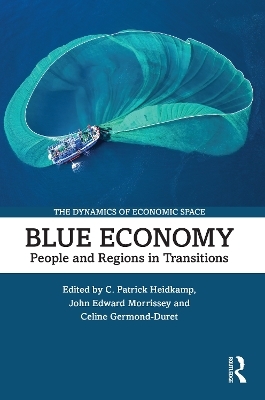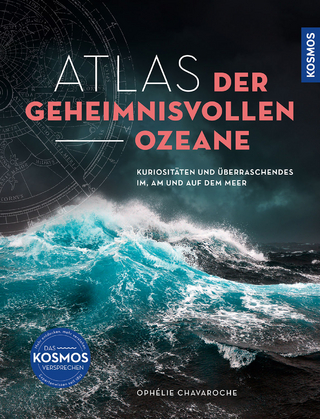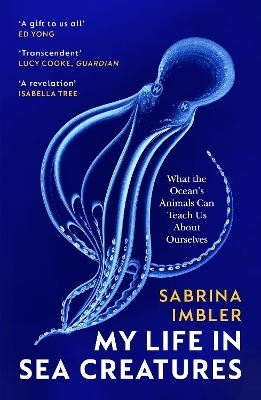
Blue Economy
Routledge (Verlag)
978-1-032-24817-2 (ISBN)
This book presents state-of-the-art perspectives on the Blue Economy. It applies important geographical and sustainability transitions perspectives and underscores how Blue Economy dynamics are situated in regional contexts and shaped by the people who live there.
The book highlights the Blue Economy concept as a potential driver of regionally sensitive, ecologically embedded, and community-focused sustainability. The scope for Blue Economy to form a core "cog" in our low-carbon future is obvious, from the potential for renewable energy production and coastal resilience building to possibilities for sustainable food production and the delivery of economic opportunities for peripheral communities. However, fundamental questions remain on how to meaningfully deliver these promises, such as how to avoid embedding a model of damaging extractivism, as per the terrestrial economy, and how to deliver on the key social sustainability principles of human well-being, equity, and justice when planning and developing blue economies. As the UN Decade of Ocean Science for Sustainable Development opens, this book provides a timely reminder of the richness, diversity, and potential of coastal and marine spaces. It advances geographical and transdisciplinary understandings of the Blue Economy and sets a baseline for continued scholarly engagement with the Blue Economy from a variety of perspectives.
This timely contribution will be of interest to policy makers, academics, industry leaders, decision makers, and stakeholders working in or connected to the Blue Economy Sphere and working in the fields of Economic Geography, Regional Development, Public Policy and Planning, Environmental Studies, and Coastal Zone Management.
C. Patrick Heidkamp is a Professor of Geography in the Department of the Environment, Geography and Marine Sciences at Southern Connecticut State University, USA, and an affiliate faculty member at the University Centre of the Westfjords in Iceland. During much of the editorial work for this volume, he was a DAAD (German Academic Exchange Service) supported Guest Professor in the Department of Geography at the University of Cologne. He is an economic geographer with current research interests in sustainability transitions in the coastal zone and transdisciplinary engagement with the Blue Economy. John Edward Morrissey is a Lecturer in Geography at Mary Immaculate College (MIC). His research is focused on issues of sustainable development, particularly sustainability transitions, low-carbon development, and challenges of low-carbon economy for urban and coastal communities. John’s work is informed by transdisciplinary approaches with a focus on the spatial and social differentiation of transition processes between communities. John has experience of researching sustainability issues in Ireland, Australia, New Zealand, and the UK. Celine Germond-Duret is a Lecturer in Environmental Politics and Policy at Lancaster University, UK. Her expertise covers marine policy and the Blue Economy, international climate politics and global inequalities, indigenous peoples, as well as discourse analysis. Her work aims at unravelling the power relations and dominant discourses in development and environmental politics and highlighting their practical implications. Her research notably appeared in Development and Change; Environment, Development and Sustainability; Marine Policy; Third World Quarterly; and Sustainable Development. She co-edited a special issue on the Blue Economy published in The Geographical Journal and co-authored the "Blue Economy" entry for the International Encyclopedia of Geography (Wiley-AAG).
List Of Figures
List Of Tables
List Of Contributors
Foreword: Michelle Voyer
Editors Acknowledgements
INTRODUCTION
Blue Economy: People and Regions in Transitions
PART 1): BE People - A Blue Economy for who?
A Blue Economy for who? Linking marine social sciences with blue economy discourse
Effective Stakeholder Engagement in Coastal Transitions: Floating away from the DAD model toward the MOM method
Community acceptance of Blue Energy: Future research trajectories for understanding place-technology fit preferences
Conflicts and Communities: Marine Aquaculture and the Blue Economy
Of fragile communities and big dreams: the Finnafjordur harbour project in Northeast Iceland
PART 2) BE Regions - Blue Economies in Place
The Blue Economy and Its Geographies: The Case of Turkey
Experimentation and enactive research: Building a knowledge infrastructure for marine social science
The Blue Economy, Climate, Tourism, and Social Injustice in Barbuda
Conceptualizing entangled Blue Economy and Marine Spatial Planning: Netting Blue Growth and Sustainable Seas in the UK
Blue Economy Agenda for the Baltic Sea Region
PART 3) BE Futures – Blue Economies in Transition
Deciding port futures: Ports of Auckland, Marine Spatial Planning and contested ethics in Blue Economy plan making
Blue Economy Policies in the European Union: The Case of French Maritime Clusters.
The Evolution of Blue Carbon: Exploring the Burgeoning Role of Macroalgae in Carbon and Nitrogen Sequestration
Strengthening industry and academic links through transdisciplinary action research: An introspective reflection of a collaborative water quality, biodiversity, and aquaculture initiative
CONCLUSION
Situating Just Transitions: Sustainability, Innovation, and Inclusion in the Blue Economy?
| Erscheinungsdatum | 16.12.2022 |
|---|---|
| Reihe/Serie | The Dynamics of Economic Space |
| Zusatzinfo | 23 Tables, black and white; 23 Line drawings, black and white; 23 Illustrations, black and white |
| Verlagsort | London |
| Sprache | englisch |
| Maße | 156 x 234 mm |
| Gewicht | 508 g |
| Themenwelt | Naturwissenschaften ► Geowissenschaften ► Hydrologie / Ozeanografie |
| Sozialwissenschaften ► Soziologie ► Spezielle Soziologien | |
| Weitere Fachgebiete ► Land- / Forstwirtschaft / Fischerei | |
| ISBN-10 | 1-032-24817-3 / 1032248173 |
| ISBN-13 | 978-1-032-24817-2 / 9781032248172 |
| Zustand | Neuware |
| Haben Sie eine Frage zum Produkt? |
aus dem Bereich


